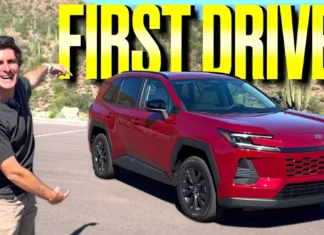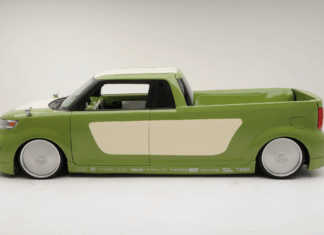Rivian is recalling its vehicles after a new R1S was involved in an accident.
To put it lightly, autonomous driving software has been a tricky venture for automakers as they roll out more advanced system. Rivian is no exception, as it just launched a new recall for an issue involving its highway assist software. According to what the company told the National Highway Traffic Safety Administration (NHTSA), Rivian Highway Assist (or HWA) could experience what it calls “a one-time functional limitation” due to the system misclassifying an object at very low speeds.
The automaker decided to escalate the issue to a voluntary safety recall after an accident involving a 2025 Rivian R1S. According to the recall report, a driver was traveling with HWA engaged in stop-and-go traffic. The specific version of software installed in their vehicle misclassified an object, and Rivian notes the driver failed to stop the vehicle on his own, causing a minor fender-bender. The R1S was still drivable after the crash, and there were no injuries.
Nevertheless, Rivian spent the past four months investigating the problem, and determined older versions of their software could experience this potential misclassification hiccup with HWA enabled. In June, it released software update 2025.18.30 over-the-air, which remedied the issue.
While Rivian says less than 1% of the 24,214 R1S and R1T vehicles (all within the 2025 model year) are affected, this recall is going out, so current owners should be aware of it. Vehicles running software version 2025.18.30 or later should be fine when it comes to this particular issue, and the automaker notes virtually all its vehicles are already in the clear thanks to consistent over-the-air updates.
Even though the company notes it’s already 99% solved the problem, actual notifications informing owners about the issue won’t go out until November 4. After that date, you’ll be able to VIN search Rivian’s recall website (for campaign number FSAM-1744, or NHTSA recall 25V-585) to see whether your vehicle is affected. There is a quicker way, of course: Vehicles with a build date between April 29, 2024 (for the R1S) or July 10, 2024 (R1T) and May 13, 2025 (both vehicles) are in the recall population, so you can check your build date. Alternatively, you can also check your vehicle’s software version: If it’s higher than 2025.18.30, Rivian claims you’re good to go.
According to the NHTSA report, this problem impacts 4,386 R1Ts in total, as well as 19,828 R1S SUVs.

























